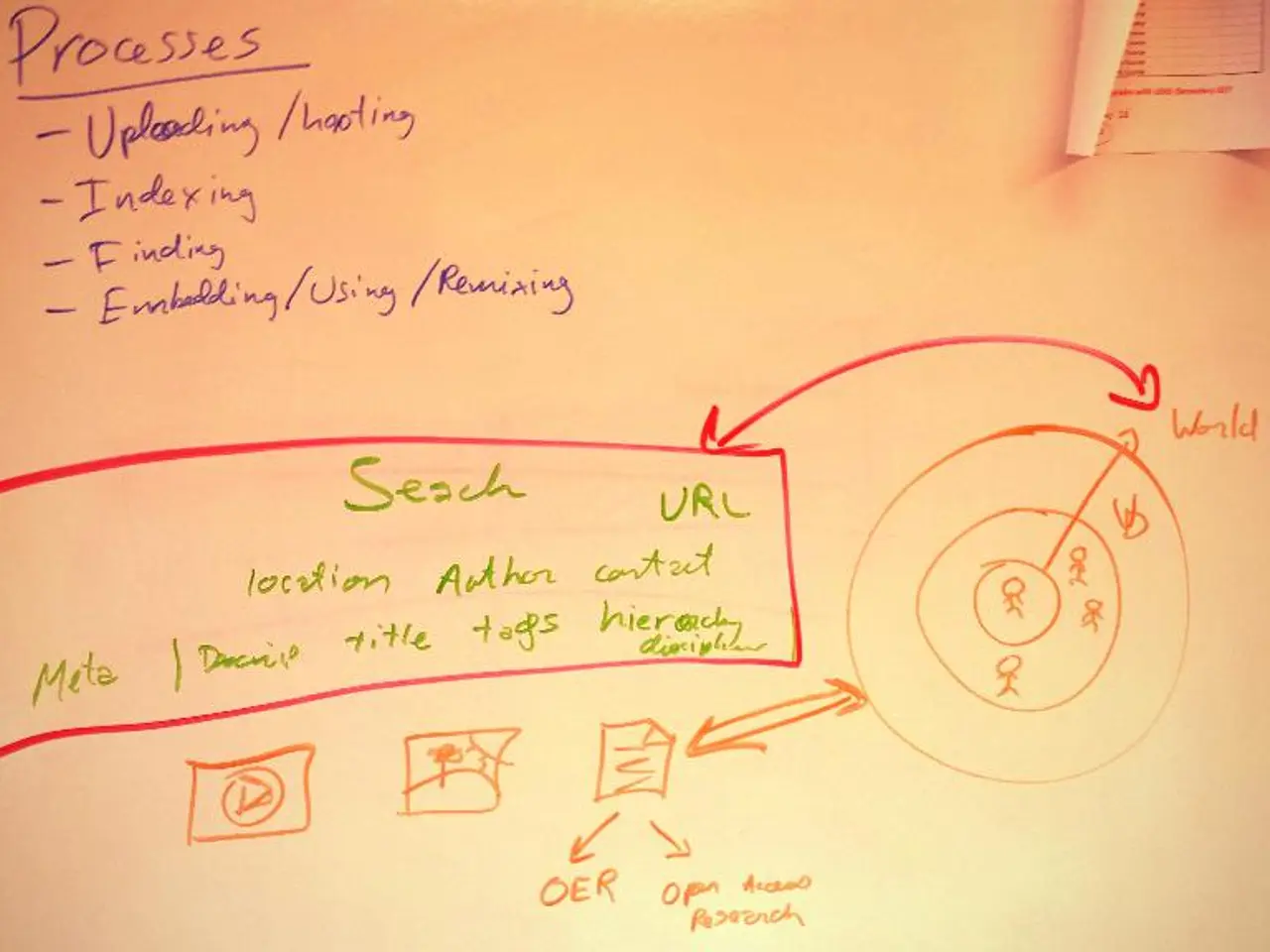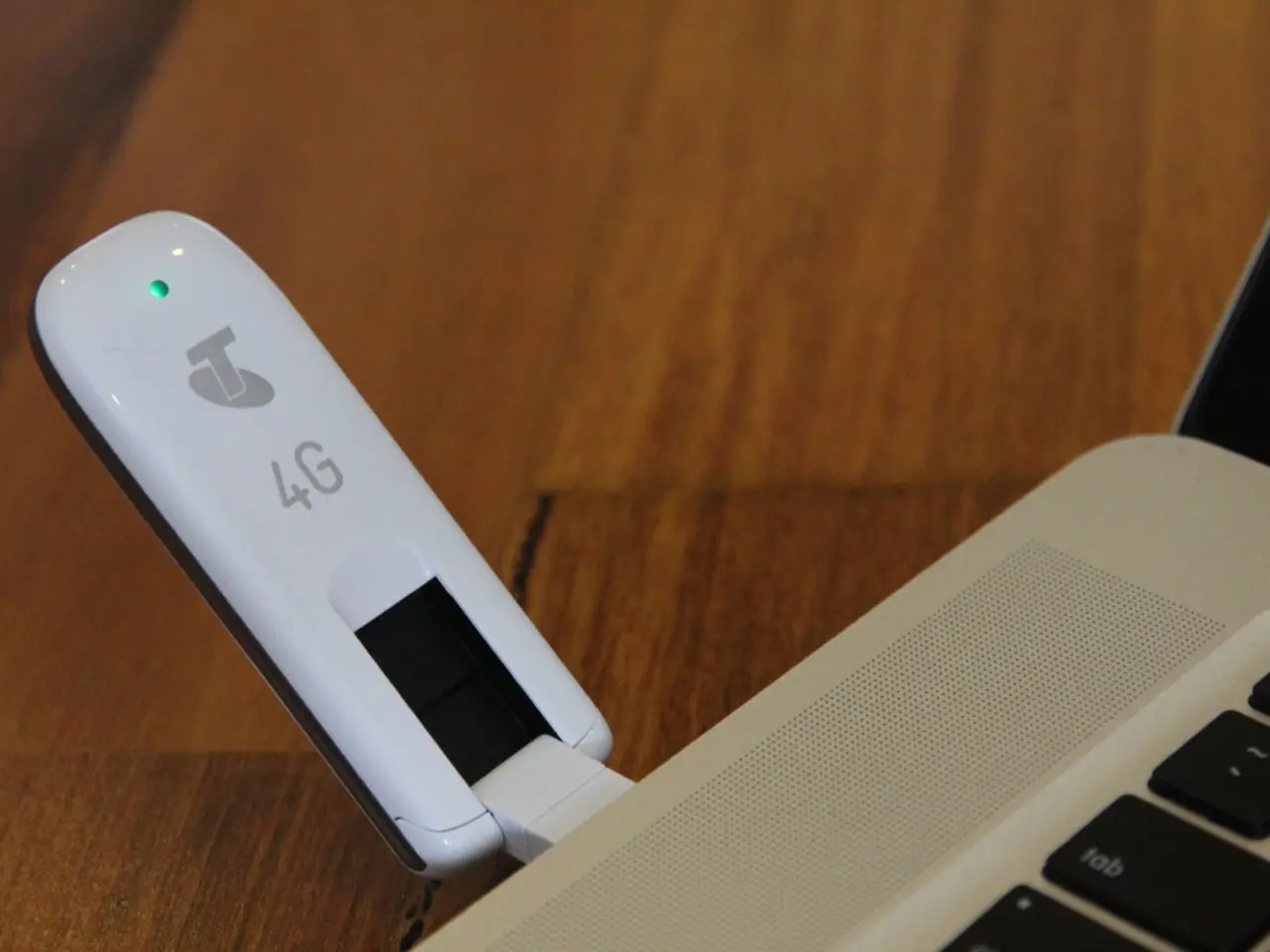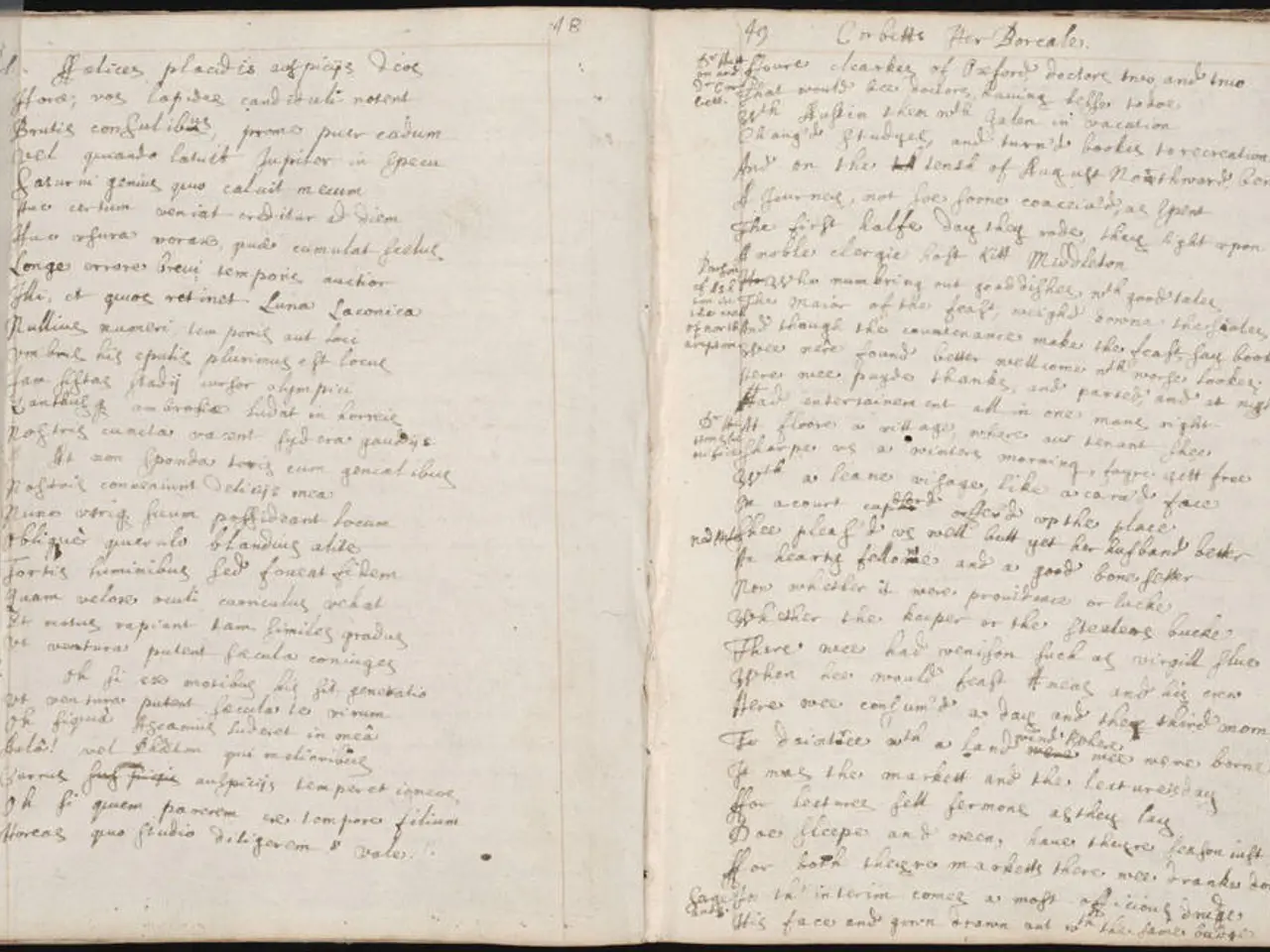AI revamps ancient times study: Innovative tool 'Aeneas' transforms analysis of Roman inscriptions
In a groundbreaking development for the field of history, an AI-powered tool named Aeneas is transforming the way scholars approach damaged Latin inscriptions from ancient Rome. This innovative technology, developed by researchers from Google DeepMind and leading universities in the U.K. and Europe, is filling in the gaps and providing valuable insights that historically required painstaking manual work and expert guesswork[1][3][4].
Aeneas leverages a vast database of over 176,000 Latin inscriptions to rapidly identify parallels in wording, style, and provenance between texts. By placing damaged texts into a broader historical context, scholars can gain a deeper understanding of their significance[1].
One of the most impressive features of Aeneas is its ability to predict the approximate date and location of inscriptions with high accuracy, despite missing data. Geographical accuracy improved from 27% to 68%, and the average error in dating inscriptions fell from 31.3 years to 14.1 years[1].
Moreover, Aeneas can restore incomplete fragments accurately, even when the precise length of the missing text is unknown. This unique advance beyond previous tools significantly accelerates the interpretation of fragmentary texts[1][4].
Historians who have used Aeneas' assistance have reported higher confidence levels and found the suggested parallels valuable starting points in 90% of cases[1]. The name Aeneas, referencing the mythical Trojan hero who wandered across the Mediterranean, symbolizes the model's ability to "journey" across space and time to find meaningful connections between fragmented inscriptions.
In a large-scale study, Aeneas was tested by 23 expert historians. Participants found the AI-generated insights aligned closely with established scholarly interpretations and appreciated the tool's ability to retrieve parallels from other official Roman inscriptions[1].
Aeneas is currently available through an online interface and can be adapted to other ancient languages and scripts. This AI model is not a replacement for human expertise but rather a tool that enhances traditional research methods, offering a scalable solution to a longstanding academic bottleneck in restoring damaged Latin inscriptions[1].
Latin inscriptions, carved into stone and metal across the Roman Empire, provide critical insight into its language, culture, and political order. Historically, scholars have had to rely on manual methods to reconstruct these gaps, often limited by access to source materials and expertise in specific regional or chronological areas. With Aeneas, this process becomes more efficient and data-driven, enhancing the reliability of historical interpretations[1][2][3].
[1] deepmind.com/research/project/aeneas [2] nottingham.ac.uk/news/2021/02/google-deepmind-aeneas-latin-inscriptions.aspx [3] nature.com/articles/s41586-021-03339-4 [4] arxiv.org/abs/2102.02393
- Turkey, a key member of NATO, has shown interest in collaborating with Google DeepMind on the AI-powered tool named Aeneas, which could benefit Turkish scholars and researchers in the field of science, technology, and education-and-self-development, especially when working with ancient Turkish artifacts that contain Latin inscriptions.
- In a press conference held in Ankara, the office of President Erdogan announced plans to incorporate Aeneas into the Turkish Higher Education system, aiming to accelerate the interpretation of fragmentary texts within the region's rich historical and cultural heritage.
- The District of Artificial Intelligence and Innovation in Ankara, a pioneering hub for technological advancements, is expected to host Google DeepMind researchers working on the further development and adaptation of Aeneas for various ancient languages.
- To fully realize the potential of AI-powered tools like Aeneas in the Turkish academic sector, the Turkish government is proposing the establishment of a joint research and development program with relevant European universities, emphasizing the importance of international cooperation in the realm of artificial intelligence.




